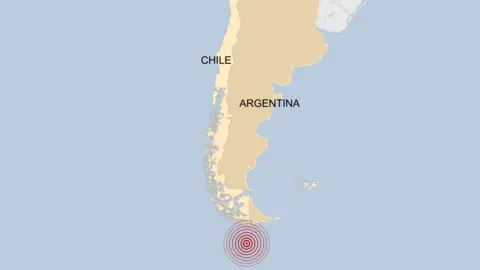Earthquakes Today: Latest Updates and Global Impact

Earthquakes today continue to capture worldwide attention, reminding us of the dynamic and unpredictable nature of our planet. Whether you're monitoring seismic activity for safety or out of curiosity, understanding the latest developments helps keep you and your community prepared. This article delivers real-time insights into recent earthquakes, their impacts, and essential safety measures.
Recent Earthquakes: What You Need to Know
A significant 7.4 magnitude earthquake struck off the southern coasts of Chile and Argentina, as reported by the United States Geological Survey (USGS Interactive Map). The event occurred early Friday morning and briefly triggered tsunami warnings across both countries. Thousands of residents in Chile’s Magallanes region and Argentina’s Tierra del Fuego province moved to higher ground following official instructions.
For a detailed account of the emergency response and community impact, you can read an in-depth report on the AP News website. The article provides a firsthand look at the evacuation procedures and updates from officials on the ground.
Tsunami Warnings and Community Response
Following the earthquake today, authorities in both Chile and Argentina immediately issued tsunami alerts. The Chilean government evacuated coastal settlements and bases in Antarctica to minimize risk. The BBC also covered the swift reactions of local communities, highlighting how more than 1,700 people evacuated to higher ground in and around Punta Arenas (read the full BBC report).
Fortunately, despite the size of the quake and several aftershocks, there were no casualties or serious damage reported. Officials credited clear communication and well-established emergency systems for the effective response. Residents were urged to stay calm and prioritize safety by following updates from their local authorities.
Understanding Seismic Activity and Preparedness
Seismic events like those observed in Chile and Argentina today are not uncommon in regions where tectonic plates converge. Countries like Chile have long histories of earthquakes and have invested in robust emergency planning and preparedness protocols. Regular earthquake drills, clear evacuation routes, and public education have proven crucial in minimizing harm.
If you live in or travel to seismically active zones, it's vital to stay updated on earthquakes today through reputable sources. Familiarize yourself with emergency contacts, evacuation points, and local alerts. Keep an emergency kit ready and know safe spots within your home or workplace.
Staying Informed: Where to Find Reliable Earthquake Updates
Accurate and timely information is essential during seismic events. Trusted organizations like the USGS and major news outlets such as AP News and BBC News provide regular updates, interactive maps, and safety advice. Bookmarking these resources can help you stay aware of earthquakes today as they happen worldwide.
Conclusion: The Importance of Earthquake Awareness
Earthquakes today highlight the ongoing need for vigilance and preparedness in seismically active regions. By staying informed, understanding official guidance, and implementing personal safety measures, we can minimize risk during sudden seismic events. Keep monitoring reputable sources, talk to your community about earthquake readiness, and stay safe—no matter where you are in the world.